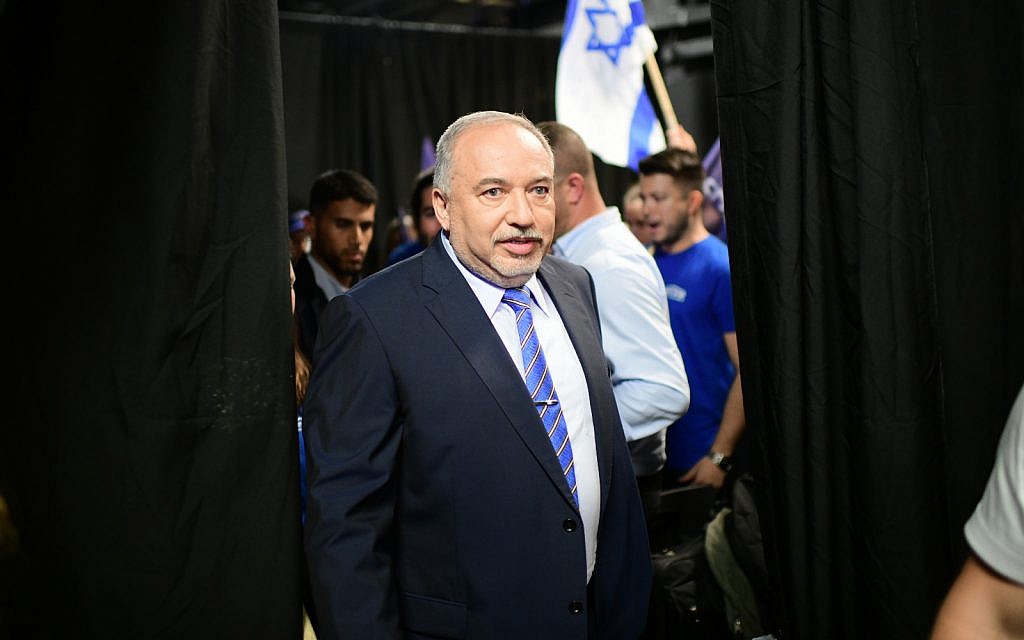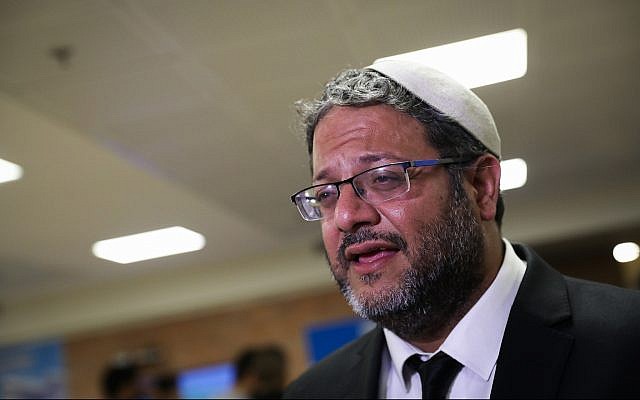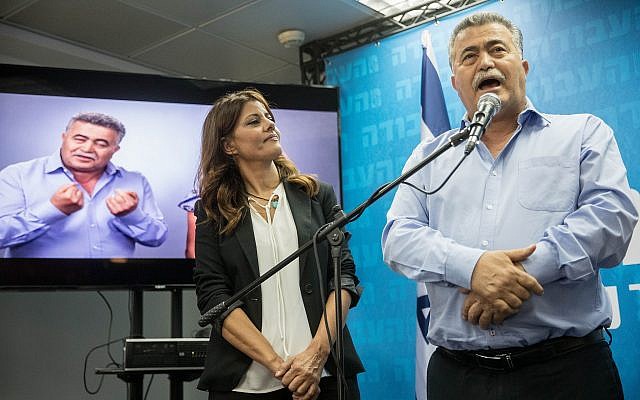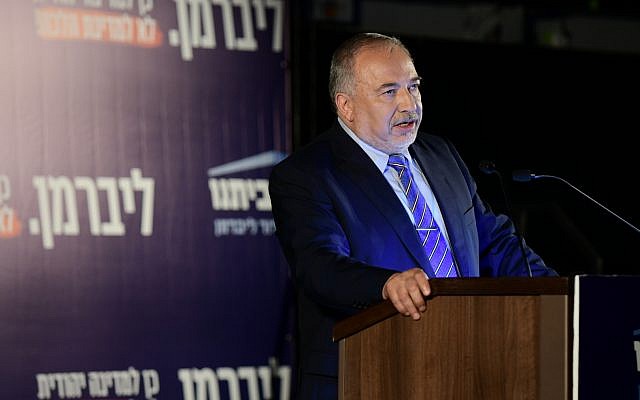Three major takeaways as 32 parties register with the Central Elections Committee for the September 17 national vote

With 47 days to go until the September 17 national vote, all 32 parties set to run in the election, and their electoral slates, have been registered with the Central Elections Committee.
Here are three takeaways from two fairly humdrum days at the committee, as the parties filed ahead of Thursday’s midnight deadline:
1. Divided Right
The most exciting drama leading up to the closing of registration was the protracted effort, which went down to the wire, to merge the extremist Otzma Yehudit party with the newly formed United Right union.
Pressure to reach an agreement continued right up until the deadline, with party leader Itamar Ben Gvir saying he had been asked to hold out a little while longer by Prime Minister Benjamin Netanyahu, who has been pushing for the merger on the grounds that right-wing votes could be wasted if Otzma Yehudit, whose name means Jewish Power, failed to clear the 3.25% electoral threshold.
In the end, however, those efforts failed and United Right, led by popular former justice minister Ayelet Shaked, filed its own party list without Otzma Yehudit or Moshe Feiglin’s quasi-libertarian hard-right Zehut (or, indeed, the tiny anti-LGBT Noam party, which had temporarily agreed to run with Otzma Yehudit.) Likud has (generously) estimated that those three parties are worth roughly four to five percent of the vote (180,000-216,000 votes).
The decision to forgo a merger, which United Right has said was due to Ben Gvir refusing to take any spot on the joint slate below eighth place, may well end up being good for the right-wing union and bad for Netanyahu, reducing his chances of gaining the support of at least 61 of the 120 eventual Knesset members.

Instead of gathering the fringes of Israel’s right-wing, the new union has brought together the mainstream factions on the right — Shaked’s New Right and the religious-Zionist union, United Right Wing Parties — all but guaranteeing their own political survival, but not necessarily Netanyahu’s.
The union headed by Shaked could end up being a direct threat to his own support: it may boost the right-wing bloc somewhat, but it is just as likely to drain support from the Likud in favor of the new United Right, with many Likud voters likely amenable to Shaked and the type of party she is forming.
At the same time, tens or hundreds of thousands of right-wing votes may now be lost in the election if they go to Ben Gvir or Feiglin’s factions, and those parties fail to clear the threshold and enter the Knesset.
2. Democratic Camp(s)
At the other end of the political spectrum, Thursday also saw hopes dashed for a grand left-wing union made up of the Democratic Camp — itself a merger between Meretz, former prime minister Ehud Barak’s Israel Democratic Party and ex-Labor MK Stav Shaffir — and the recently announced Labor-Gesher partnership.
Despite significant internal criticism over the decision, newly elected Labor leader Amir Peretz opted to run independently of the newly formed Democratic Camp, and instead position Labor as a left-leaning socio-economic party less focused on diplomatic and peace issues.
There has been lingering anger within Labor over Peretz’s decision to merge the faction with former lawmaker Orly Levy-Abekasis’s Gesher party, which is further to the right on the political spectrum and failed to pick up enough votes to enter the Knesset in April’s elections. Others within Labor, notably the party’s No. 2 MK, Itzik Shmuli, meanwhile, had pushed Peretz to cooperate with the Democratic Camp on a joint slate in an effort to win as many seats as possible for the left.

As Peretz and Levy-Abekasis presented their slate on Thursday, Shmuli stood by their side, telling press afterwards that Labor was “the true camp for Israeli democrats.” A few hours earlier, Shaffir, Shmuli’s one-time partner when leading the 2011 social protests, had said that her party would be the one to “ensure the future of Israeli democracy.”
Labor has seen its fortunes tumble in recent years, hit by a rightward shift among Israeli voters, turmoil within the party, and the emergence of various new political players that have eroded its base. In April’s election, it dropped from the 24 Knesset seats it received as part of the Zionist Union in 2015 to just six. In total, the party gained only 4.43 percent of the national vote.
Peretz’s decision to stay out of the Democratic Camp will determine whether Labor, still plagued by internal divisions, will be able to regain its past glory. More likely, with the party currently hovering at around six seats, not far from the electoral threshold (as opposed to Democratic Camp’s nine to twelve seats), it may mean that the election campaign could become a fight for Labor’s very survival.
3. Liberman’s gain
While the right and left kept each other on their toes until the final hours before the Thursday night deadline, the only major party to casually file its slate on Wednesday, avoiding speculation and spin, was Avigdor Liberman’s Yisrael Beytenu.
Being the first to finalize its electoral list, and doing so without the need for other partners, symbolized the image of Yisrael Beytenu as a sturdy, trustworthy and even centrist party that Liberman has cultivated over the past few weeks. It also underlines his confidence given the gains his party has seen in polling, jumping from the five seats it received in April’s election to 11 in a survey released on Thursday night.
According to that Channel 12 poll, the right-wing and ultra-Orthodox parties together would win 54 seats without Liberman, while the center-left and Arab factions would have 46, meaning neither side could form a coalition without Yisrael Beytenu. That means that the former defense and foreign minister would again hold the balance of power and that Netanyahu will likely be unable to form a coalition without him.

Such a turn of events would mark the second time this year that Liberman has been in the kingmaker position. In May, weeks after the previous elections, Netanyahu failed to form a new coalition when Liberman refused to join his government.
Perhaps more significantly for Liberman, Thursday’s poll showed that half of Israeli voters want to see a unity government between the Likud and Blue and White parties that does not include ultra-Orthodox factions. Yisrael Beytenu has vowed, if it holds the balance of power, to indeed force a coalition of Likud and Blue and White that does not include religious parties.
